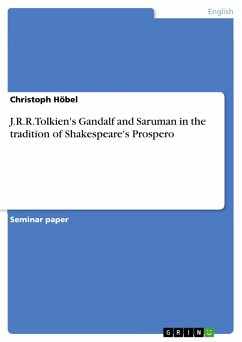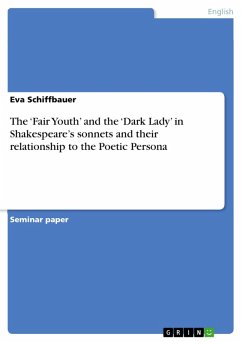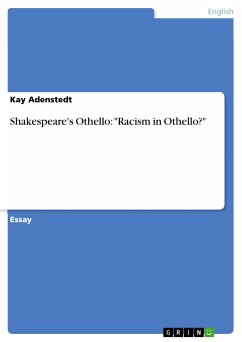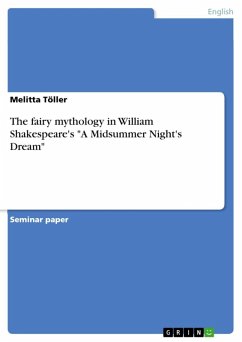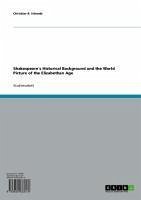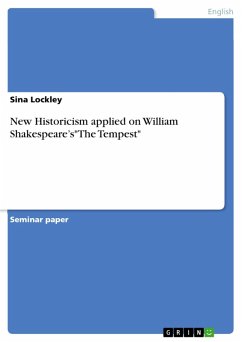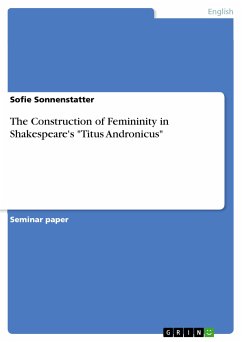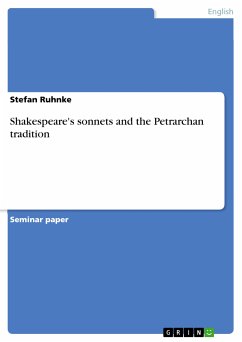
Shakespeare's sonnets and the Petrarchan tradition (eBook, ePUB)

PAYBACK Punkte
0 °P sammeln!
Seminar paper from the year 2007 in the subject English Language and Literature Studies - Literature, grade: 1,3, Ernst Moritz Arndt University of Greifswald, course: Petrarchism in English Renaissance Poetry, language: English, abstract: Ever since the first publication of Shakespeare's Sonnets in Thomas Thorpe's, very likely unauthorized, Quarto-edition in 1609, these poetic masterpieces have interested and captivated readers and critics alike for the following centuries. Shakespeare's exceptional abilities as a playwright as well as a poet have always drawn the attention of literary critici...
Seminar paper from the year 2007 in the subject English Language and Literature Studies - Literature, grade: 1,3, Ernst Moritz Arndt University of Greifswald, course: Petrarchism in English Renaissance Poetry, language: English, abstract: Ever since the first publication of Shakespeare's Sonnets in Thomas Thorpe's, very likely unauthorized, Quarto-edition in 1609, these poetic masterpieces have interested and captivated readers and critics alike for the following centuries. Shakespeare's exceptional abilities as a playwright as well as a poet have always drawn the attention of literary criticism towards his works and also to his sonnets. In the past, critics have often tried to answer all sorts of questions concerning the sonnets. Among the questions dealt with, like the identity of the persons mentioned in the poems, the correct order and structure of the sonnet cycle and many others, critics also tried to answer in which ways Shakespeare used and incorporated already existing poetic conventions and in how far he wrote against, contrasted and overcame common literary traditions by producing, according to Pequigney's praise, "the greatest of all love-sonnet sequences". The common literary tradition for writing love poetry that not only English but also continental poets followed in the sixteenth century was that of Petrarchism. Already after Francesco Petrarca, or Petrarch, had introduced this way of writing love poetry, the fashion of imitating or adopting and sometimes contrasting the Petrarchan way of writing poetry spread from Italy to France, Spain, the Netherlands and also to England4, where Wyatt and Surrey introduced the sonnet form and the thematic aspects which characterize Petrarchism5. Although Petrarchism, with its many followers who, despite striking similarities, often exhibit different ways of adopting the model set by Petrarch, seems not too easy to define6, this paper aims to show how this prominent love poetry tradition was adopted and adapted by Shakespeare for his Sonnets. To achieve this goal it seems essential to try to define what the Petrarchan way of writing love poetry is and why it became a predominant fashion in England before and during the time Shakespeare wrote his sonnets. This is to be the purpose of the following chapter.
Dieser Download kann aus rechtlichen Gründen nur mit Rechnungsadresse in A, B, BG, CY, CZ, D, DK, EW, E, FIN, F, GR, HR, H, IRL, I, LT, L, LR, M, NL, PL, P, R, S, SLO, SK ausgeliefert werden.





